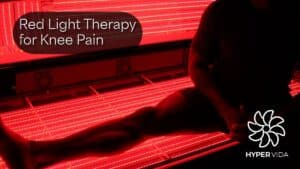Understanding Post-Concussion Syndrome and the Role of Oxygen
Traumatic brain injury (TBI) remains one of the leading causes of long-term disability in the United States. Although most cases are classified as mild, up to one in four individuals continue to experience chronic post-concussion symptoms—including cognitive difficulties, headaches, and fatigue—years after the initial injury.
Recent research has begun exploring Hyperbaric Oxygen Therapy (HBOT) as a potential way to support recovery for these patients. By delivering 100 percent oxygen in a pressurized chamber, HBOT increases oxygen availability to brain tissues, which may promote metabolic repair and neuroplasticity, or the brain’s natural ability to form new connections.
Inside the Study: Design and Key Findings
A randomized, prospective trial published in PLOS One investigated how HBOT might influence recovery in patients with mild traumatic brain injury (mTBI) and persistent post-concussion syndrome (PCS) even years after their initial injury.
The study included 56 participants between one and five years post-injury. Each received 40 HBOT sessions over two months, with 100 percent oxygen administered at 1.5 atmospheres for 60 minutes per session. Researchers compared results from two groups—one treated immediately and one after a control period with no treatment.
Following HBOT, participants showed notable improvements in cognitive performance and quality of life, assessed using validated tools like the Mindstreams test battery and the EQ-5D quality-of-life measure. Brain imaging (SPECT scans) also revealed increased activity in regions linked to attention, information processing, and memory—correlating with the observed cognitive gains.
Importantly, no significant improvements were found during the control period, reinforcing the likelihood that these changes were associated with HBOT rather than natural recovery.
What the Findings Suggest
While more research is needed to confirm long-term benefits, the study provides evidence that HBOT may support neuroplasticity and metabolic repair even in chronic cases of post-concussion syndrome. This could represent a meaningful shift in how clinicians view recovery timelines for mild brain injuries.
For individuals experiencing lasting symptoms, these results highlight the importance of continued exploration into non-invasive, oxygen-based therapies.
Looking Forward: HBOT and the Future of Brain Recovery Research
HBOT’s role in treating post-concussion syndrome remains under active investigation, but studies like this demonstrate its potential to improve brain function long after the initial trauma. As clinical research continues, it may help define standardized protocols and identify which patients could benefit most from this evolving approach to neurological rehabilitation.
Check out the article here: https://journals.plos.org/plosone/article?id=10.1371/journal.pone.0079995







